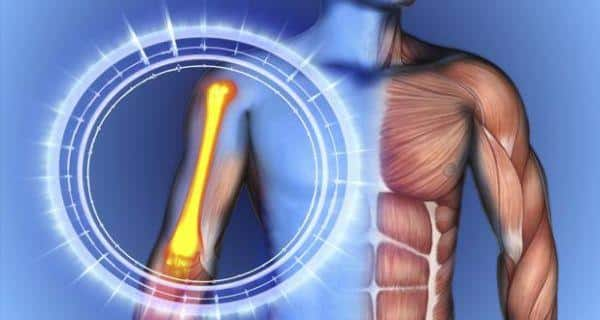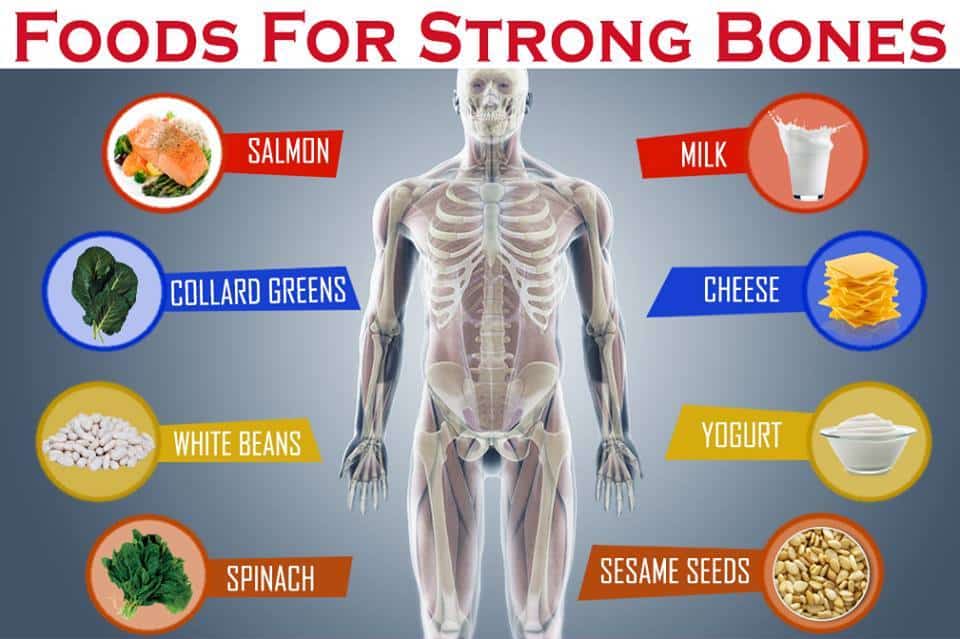Skeletal health is fundamental to leading a vibrant, active life. This guide will dive into the various aspects of maintaining strong bones and supple joints, from the nutrients that fortify bone density to exercises that keep joints flexible. As your body ages, understanding how to support your skeletal system becomes increasingly important. With practical advice and insights, you’ll discover how to nurture your body’s framework effectively. Prepare to embark on a journey towards a stronger, healthier you, with a focus on the skeletal system that supports you every day.
Contents
- 1 The Essentials of Skeletal Health
- 2 Nutrition for Bone Strength
- 3 Exercise and Bone Density
- 4 Understanding and Preventing Osteoporosis
- 5 Joint Care and Maintenance
- 6 Supplements and Medications
- 7 Lifestyle Adjustments for Healthy Aging
- 8 Navigating Treatment and Healthcare
- 9 Cultivate Your Skeletal Well-being
The Essentials of Skeletal Health

Skeletal health is the cornerstone of your overall physical well-being, providing the structure for your body and the protection for your vital organs. Bones are living tissues, constantly breaking down and rebuilding, a process influenced by various factors, including nutrition, physical activity, and hormonal changes. Joints connect bones, allowing for mobility and flexibility, and require equal attention to maintain their function and comfort. Understanding the complex nature of these elements is the first step in committing to healthier bones and joints.
As individuals age, the balance between bone breakdown and formation shifts, often leading to decreased density and increased fragility. It’s crucial to recognize the natural progression of skeletal aging to mitigate risks such as osteoporosis and fractures. Joint health, too, can decline, manifesting as stiffness or discomfort, urging the need for preventive care. By grasping the essential workings of your skeletal system, you lay the groundwork for targeted strategies that promote long-term health and mobility.
Nutrition for Bone Strength

Strong bones rely heavily on a diet rich in calcium, vitamin D, and other critical nutrients. Calcium serves as the primary building block for bones, while vitamin D plays a pivotal role in calcium absorption and bone growth. Other nutrients like magnesium, vitamin K, and phosphorus also contribute significantly to bone strength. Incorporating a variety of these nutrient-rich foods into daily meals can dramatically enhance bone density and overall skeletal health.
While understanding what to include is vital, knowing what to avoid is equally important. Excessive consumption of caffeine and sodium can impede calcium absorption, while smoking and excessive alcohol intake can weaken bone structure. Balancing the intake of these substances is key to maintaining optimal bone health. Moreover, ensuring adequate hydration is essential as it contributes to joint lubrication and overall cellular function within the bones and joints.
Exercise and Bone Density

Engaging in regular physical activity is one of the most effective ways to boost bone density and strength. Weight-bearing exercises, such as walking, jogging, and dancing, apply stress to bones, stimulating bone formation and slowing down bone loss. Strength training, too, is beneficial as it increases muscle mass that supports and protects the skeletal structure. Even moderate exercise can make a significant difference in maintaining bone health.
While exercise is beneficial, it’s essential to approach it mindfully to avoid joint injury. Start with low-impact exercises and gradually increase intensity, paying attention to body signals and discomfort. Balancing different types of activities can provide comprehensive benefits, improving bone density, joint flexibility, and overall mobility. Consulting with a healthcare provider or a fitness professional can help tailor an exercise regimen that aligns with individual health needs and goals.
Understanding and Preventing Osteoporosis

Osteoporosis is a condition characterized by weakened bones, making them more prone to fractures. It often goes unnoticed until a bone breaks, making early detection and prevention strategies critical. Factors such as genetics, age, and lifestyle choices play a significant role in the development of osteoporosis. Understanding these factors can empower individuals to take proactive measures, such as engaging in regular weight-bearing exercise and maintaining a balanced diet rich in calcium and vitamin D.
Prevention is key when it comes to osteoporosis. Regular bone density tests can help track bone health, especially for those at higher risk due to age or family history. Additionally, avoiding smoking, limiting alcohol consumption, and staying physically active are practical steps that significantly reduce the risk. For those already diagnosed, there are medications and therapies available that can help manage the condition and reduce the risk of fractures, highlighting the importance of early intervention and consistent care for long-term skeletal health.
Joint Care and Maintenance

Maintaining joint health is vital for mobility and overall quality of life. Joints endure wear and tear daily, and without proper care, this can lead to discomfort and mobility issues. Lubricating cartilage, the smooth tissue at the end of bones, ensures joints move smoothly, but it can deteriorate with age or misuse. Incorporating activities that enhance joint flexibility, such as stretching and low-impact exercises, can significantly benefit joint health.
Recognizing the signs of joint distress is crucial for timely intervention. Common symptoms include stiffness, swelling, and pain, which may indicate conditions like arthritis or bursitis. Maintaining a healthy weight reduces the load on joints, minimizing the risk of wear and tear. Additionally, using proper techniques in physical activities and avoiding repetitive motion can prevent joint injuries. Consistent self-care combined with professional guidance ensures long-term joint health and mobility.
Supplements and Medications

Supplements and medications can play a supportive role in maintaining skeletal health. Calcium and vitamin D supplements are popular for enhancing bone strength, especially in individuals with dietary restrictions or increased needs. Glucosamine and chondroitin are commonly used for joint health, offering potential relief from joint pain and improving mobility. However, it’s essential to approach supplementation with caution, ensuring it complements a balanced diet and healthy lifestyle.
While supplements offer benefits, medications prescribed for bone and joint issues, such as bisphosphonates for osteoporosis or anti-inflammatory drugs for joint pain, are critical for some individuals. It’s essential to use these medications responsibly, understanding the dosage, duration, and potential side effects. Regular consultations with healthcare professionals ensure that any treatment plan, including supplements and medications, is safe and effective for the individual’s specific needs.
Lifestyle Adjustments for Healthy Aging

Lifestyle choices have a profound impact on skeletal health, particularly as one ages. Smoking and excessive alcohol consumption are known to weaken bone structure and damage joint health. Conversely, adopting a balanced diet, engaging in regular physical activity, and maintaining a healthy weight contribute to strong bones and flexible joints. Even small, daily choices can lead to significant improvements in skeletal health over time.
Beyond diet and exercise, managing stress is also crucial for bone and joint health. Chronic stress can lead to hormonal imbalances that adversely affect bone density and joint function. Techniques such as mindfulness, meditation, and adequate sleep can help manage stress levels, promoting overall well-being. Regular health check-ups, staying informed about bone density and joint health, and adapting lifestyle habits as necessary can significantly enhance the quality of life as one ages.

Seeking professional healthcare advice is crucial when dealing with skeletal health issues. Regular check-ups can catch potential problems early, and healthcare professionals can provide tailored advice and treatment options. Physical therapy, for example, can be incredibly beneficial for joint issues, improving mobility and reducing pain. For more severe conditions, surgical interventions may be necessary, and understanding the full range of available treatments is important for informed decision-making.
Navigating the healthcare system can be daunting, but being an informed patient is empowering. Understanding insurance coverage, treatment costs, and the qualifications of healthcare providers ensures that one receives the best possible care. Patient support groups and resources are also invaluable for sharing experiences and advice. Ultimately, a proactive and informed approach to treatment and healthcare ensures the best outcomes for those seeking to improve or maintain their skeletal health.
Cultivate Your Skeletal Well-being
In this journey toward stronger bones and healthier joints, every step counts. Embrace the knowledge and strategies discussed to actively enhance your skeletal health. Prioritize nutrition, exercise, and self-care, and seek professional guidance when needed. Your bones and joints form the foundation of your body; nurturing them ensures a life full of vitality and mobility. Start today, make informed choices, and take decisive steps towards a stronger, more resilient you.


